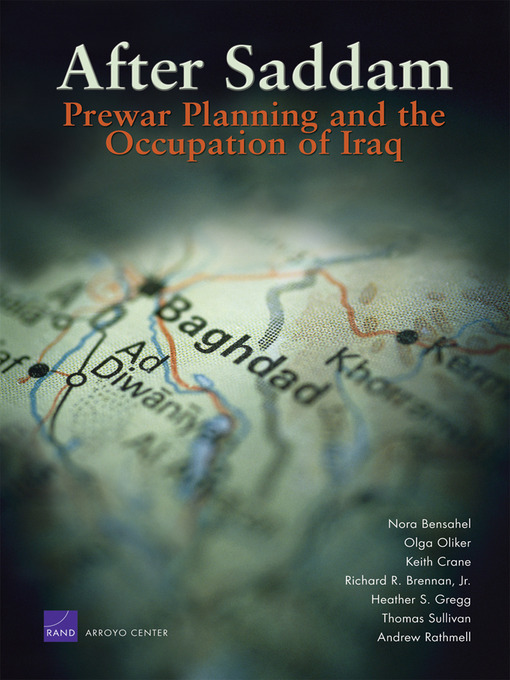This monograph begins by examining prewar planning efforts for postwar Iraq, in order to establish what U.S. policymakers expected the postwar situation to look like and what their plans were for reconstruction. The monograph then examines the role of U.S. military forces after major combat officially ended on May 1, 2003; the analysis covers this period through the end of June 2004. Finally, the monograph examines civilian efforts at reconstruction after major combat ended, focusing on the activities of the Coalition Provisional Authority (CPA) and its efforts to rebuild structures of governance, security forces, economic policy, and essential services prior to June 28, 2004, the day that the CPA dissolved and transferred authority to the Interim Iraqi Government. The authors conclude that the U.S. government was unprepared for the challenges of postwar Iraq for three reasons: a failure to challenge fundamental assumptions about postwar Iraq; ineffective interagency coordination; and the failure to assign responsibility and resources for providing security in the immediate aftermath of major combat operations.
-
Description
-
Creators
-
Details

- Nora Bensahel - Author
- Olga Oliker - Author
- Keith Crane - Author
- Richard R. Brennan Jr. - Author
- Heather S. Gregg - Author
OverDrive Read
- ISBN: 9780833046383
- Release date: December 8, 2009
PDF ebook
- ISBN: 9780833046383
- File size: 2752 KB
- Release date: December 8, 2009
Formats
OverDrive Read
PDF ebook
subjects
Languages
English
